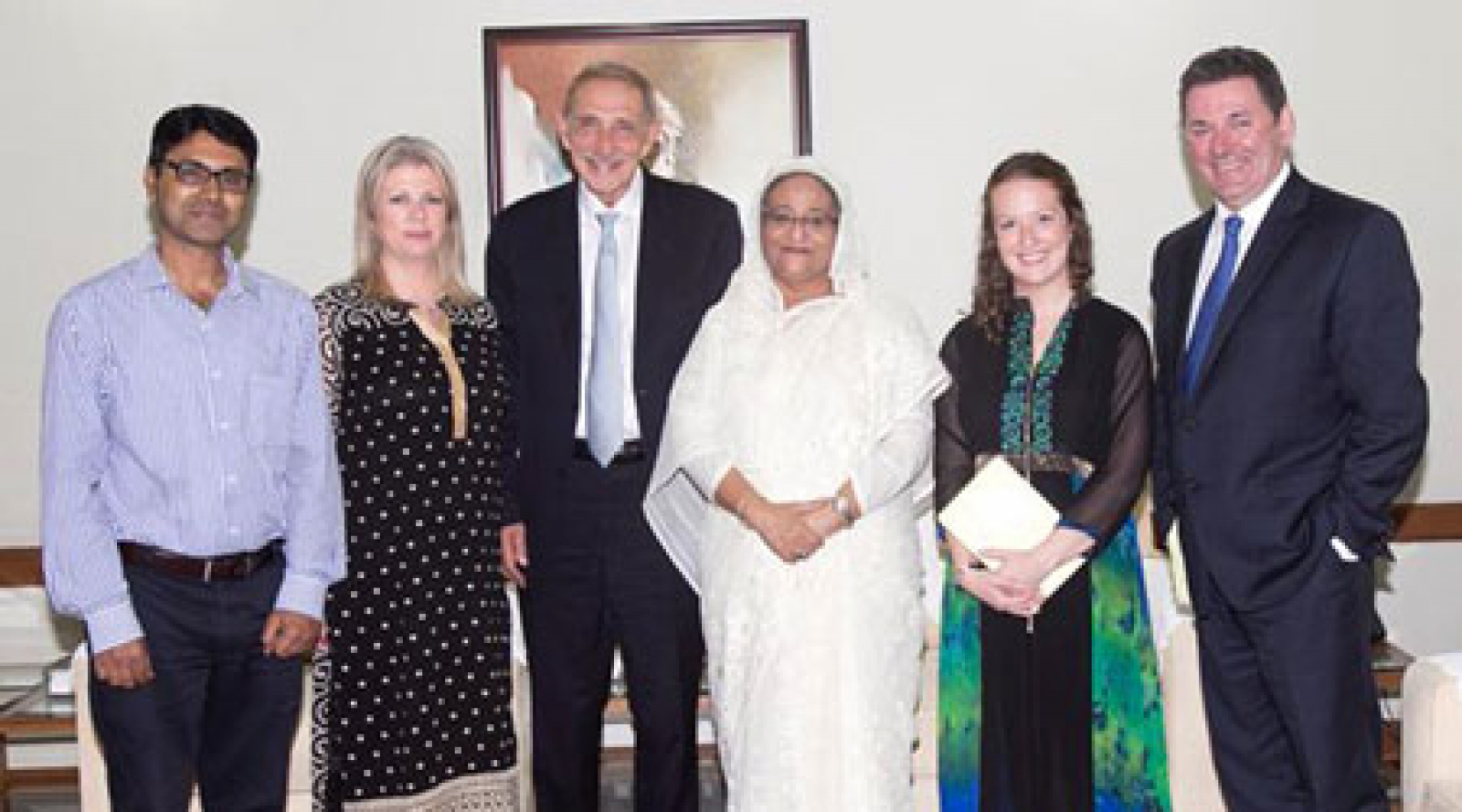
SHARE
ISSUES
Senior NDI representatives met in Dhaka with the honorable prime minister of Bangladesh, Sheikh Hasina, last month. The delegation was in Dhaka to discuss recent developments and the Institute’s programs in Bangladesh. The delegation met with the prime minister privately after attending an Iftar -- a meal eaten after sunset during the Muslim holy month of Ramadan -- at her residence.
At the meeting NDI staff discussed the history of NDI’s democracy work in Bangladesh, and opportunities for further collaboration. NDI has worked in Bangladesh since 1988 and observed the nation's parliamentary elections 1991, 1996, 2001 and 2008, as well as by-elections and local polls. In addition to election observation, the Institute has conducted a variety of programs to strengthen democratic practices within political parties, the parliament and civil society. NDI also helped to establish the Bangladesh Alliance for Women Leadership (BDAWL) to help the next generation of women leaders rise to senior positions within their respective fields.
From 2005 to 2007, in cooperation with Bangladesh’s major political parties, the Institute worked with political party members to improve their leadership skills while providing training in organizational development and constituency relations to civic groups and parliamentary leaders. During the period leading up to the 2008 elections, NDI held a series of dialogues with political parties and election commission officials to reach consensus on a number of election-related issues. NDI also convened political party leaders, former MPs and civil society experts in private, multiparty forums to prepare them to address key governance challenges -- such as food security, parliamentary reform and women's political participation -- following the polls.
Ahead of the 2014 parliamentary elections, NDI provided Bangladeshi citizen observers with intensive training on the Declaration of Global Principles for Nonpartisan Election Observation and Monitoring by Citizen Organizations (DoGP) to effectively monitor and report on subsequent upazila (sub-district) and future elections. Single-party dialogues between political parties and election commission officials in 2008 helped to identify common ground on election-related challenges. Private multi-party forums with civil society experts also prepared future leaders to address issues such as food security and parliamentary reforms following elections. Thursday Group, a forum established by the Institute in 2011, developed a core group of reform-minded young MPs who paved the way for a new model in cross-party cooperation on issues such as climate change. Follow-on multi-stakeholder policy forums led by young civil society leaders are providing an inclusive platform for a broad cross-section of Bangladesh political and civic actors to generate public policy recommendations in advance of future elections.
NDI's programs in Bangladesh have been funded by the National Endowment for Democracy (NED), United States Agency for International Development (USAID), the Australian Agency for International Development (AUSAID), the United Kingdom's Department for International Development (DFID) and the Swedish International Development Cooperation Agency (SIDA).
The Institute offers its sincerest condolences to the friends and families of those killed and injured in the terrorist attacks on July 1.


